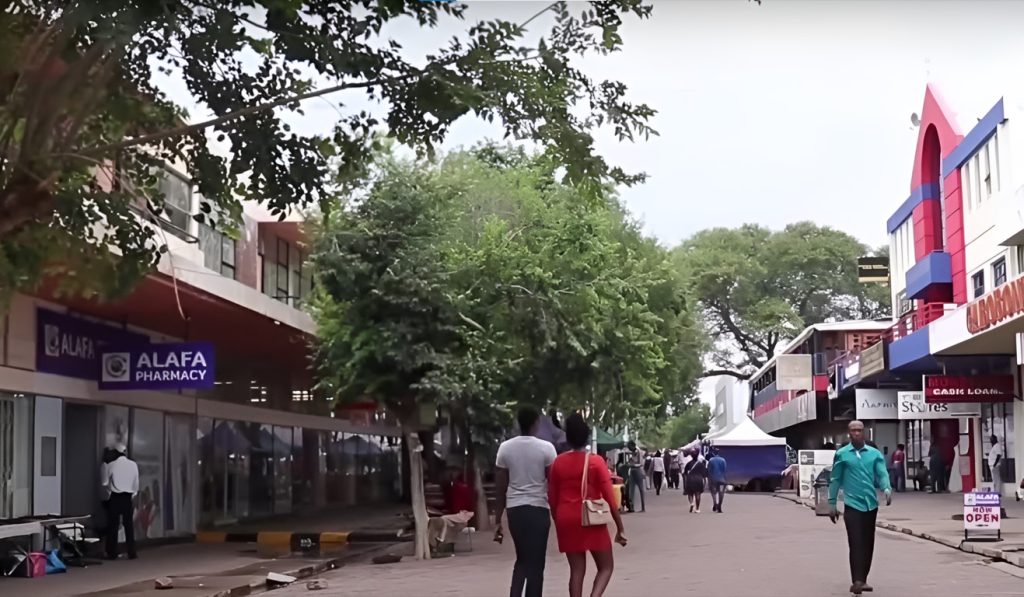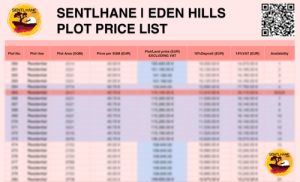Understanding Property Ownership for Foreign Investors in Botswana
Botswana is one of Africa’s most stable economies, attracting investors seeking opportunities in real estate. While property ownership is relatively open to foreign buyers, there are specific legal and financial considerations to understand before investing. This guide covers the types of property ownership available, restrictions, and the process for foreign investors looking to buy property in Botswana.

Table of Contents
Types of Property Ownership in Botswana
Foreign investors can own property in Botswana under two primary categories: freehold and leasehold ownership.
Freehold Property:
Freehold ownership grants full, indefinite rights over the land and structures on it. However, freehold land is limited, mainly found in private estates and developments, making it highly valuable.
Leasehold Property:
Leasehold land is more common and typically leased from the government for 50 to 99 years. Investors must renew leases upon expiration and comply with local land regulations.
Foreigners can purchase both freehold and leasehold properties, though government approval is required for certain transactions, especially large-scale developments.
Legal Requirements for Foreign Buyers
Botswana allows non-citizens to buy property, but the process involves specific legal steps:
- Title Deed Verification: Investors must confirm ownership and ensure the property has a clear title by checking records at the Deeds Registry.
- Approval from the Land Board: If purchasing leasehold land, the local Land Board must approve the transaction.
- Company Registration: Foreigners looking to invest in commercial real estate often form local companies to facilitate purchases, as businesses may have fewer restrictions than individuals.
- Legal and Tax Compliance: Investors must comply with Botswana’s real estate laws, tax obligations, and foreign exchange regulations.
The Buying Process for Foreign Investors
The process of buying property in Botswana as a foreigner includes several key steps. First, investors should conduct thorough market research to find the best opportunities. Engaging a real estate lawyer is essential for reviewing contracts and ensuring compliance with local laws.
Once a suitable property is identified, buyers must negotiate terms and sign a sale agreement, which details payment schedules, transfer conditions, and other legal requirements. Payments are typically made through Botswana-based banks to ensure regulatory compliance.
The final step involves official property transfer and registration with the Deeds Registry, after which the buyer receives a legal title confirming ownership.
Costs and Taxes Involved

Investors should account for transfer duties, legal fees, registration costs, and property taxes when purchasing real estate in Botswana. The transfer duty is 5% of the property value, but exemptions may apply for first-time buyers or certain investment projects.
Financing options for foreign buyers are available but can be limited. Some Botswana-based banks provide mortgage options, though foreign investors often rely on private financing or developer-backed payment plans.
Why Invest in Botswana’s Property Market?
Botswana’s strong economy, investor-friendly policies, and stable legal system make it a prime real estate investment destination. Demand is growing for luxury estates, commercial developments, and eco-friendly tourism properties, particularly in areas like Gaborone, Phakalane, and Sentlhane’s Eden Hills.
Foreign investors benefit from long-term ownership security, attractive rental yields, and a transparent legal framework. With the right approach, investing in Botswana real estate can be a profitable and secure venture.
For foreign investors considering real estate in Botswana, resources like the Botswana Investment and Trade Centre (bitc.co.bw) provide essential guidance on land ownership, tax incentives, and foreign investment policies. Additionally, reports from JLL Global Real Estate Services (jll.com) highlight foreign direct investment (FDI) trends in Botswana’s property sector, outlining opportunities in both residential and commercial markets.
Conclusion: A Smart Investment Choice for Foreign Buyers
While Botswana offers foreign investors unique real estate opportunities, navigating the property market requires careful planning and legal guidance. Understanding ownership structures, legal obligations, and the buying process ensures a smooth transaction. With limited freehold availability and a growing economy, investing in Botswana’s real estate market presents a valuable long-term opportunity.



